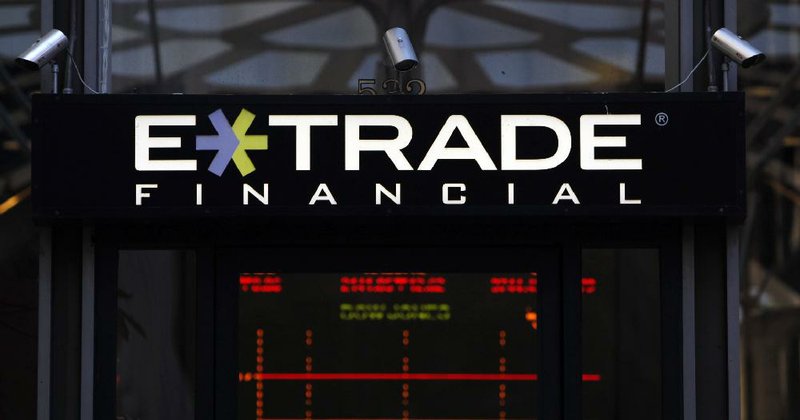Morgan Stanley is buying E-Trade in a $13 billion, all-stock deal announced Thursday, bringing more consolidation to the brokerage market and giving the investment bank to the rich a foothold with a more mainstream clientele.
The deal, which is the biggest takeover by a major U.S. bank since the 2008 financial crisis, combines Morgan Stanley's prowess and resources with E-Trade's more than 5 million customers, with more than $360 billion in retail trade assets, the companies said in a news release. Morgan Stanley has more than 3 million clients with $2.7 trillion in assets under management.
Combined, they will create a firm with a strong presence on both Wall Street and Main Street -- Morgan Stanley's traditionally wealthier clients and investment management business with E-Trade's younger, mom-and-pop investors and online investing platform.
"Wall Street banks continue to covet Main Street customers," Greg McBride, chief financial analyst for Bankrate.com, said in an email. "Morgan Stanley's acquisition of E-Trade gives them access to brokerage customers, employees with company stock, and the lifeblood of financial services -- low cost retail bank deposits."
Morgan Stanley's shares fell 4.5%, to $53.75 in New York trading, while E-Trade rose almost 22%, closing at $54.73.
The deal, which is expected to close in the final quarter of 2020, comes after Charles Schwab and TD Ameritrade announced their $26 billion combination in November. The discount brokerage giants had revolutionized the industry by making stock trading more affordable and accessible to the masses. Their merger signaled the industry's shift from a commission-heavy revenue stream to one more reliant on interest income and client services, and raised questions about how E-Trade would survive in their shadow. The Schwab-Ameritrade deal could still stall on antitrust issues. If it wins approval, the deal is expected to close late this year.
Similarly, Thursday's merger is likely to come under intense scrutiny from Washington regulators and Democrats in Congress already skeptical of large banks such as Morgan Stanley growing any bigger.
"This is not going to be an easy deal to move through the Federal Reserve," Jaret Seiberg, a policy analyst with Cowen Washington Research Group, said in a research note. "We would not be surprised if it spilled into 2021 simply because of the need to address the systemic risk aspects of the transaction."
Some analysts had predicted E-Trade would become a target for Morgan Stanley or Goldman Sachs. The digital brokerage firm has been a leading force in the industry since its founding in 1982, enjoying household recognition thanks to its goofy commercials. In addition to trading services, E-Trade also provides a full suite of digital banking services, including direct integration with brokerage accounts and checking and high-yield savings accounts. E-Trade brings with it roughly $56 billion in low-cost deposits each year, a major bonus for Morgan Stanley as it moves into consumer finance.
"E-Trade's products, innovation in technology, and established brand will help position Morgan Stanley as a top player across all three channels: financial advisory, self-directed, and workplace," James Gorman, chairman and chief executive of Morgan Stanley, said in a news release.
The brokerage industry has been dramatically reshaped by the race to zero commissions, which started in October when Schwab slashed its online commission fees. Fidelity and E-Trade soon followed suit, raising questions about how the industry would pivot from its commission-driven business model. The competition has been heightened by retail investors choosing low- and zero-cost index funds and leaving the stock-picking market.
"Between zero trading commissions and competitive yielding savings accounts and cash management products, the competition for consumers' cash and investments is as fierce as ever," McBride said. "And this reaches a broad spectrum of households, it isn't just the ultra wealthy that are in demand."
Mike Pizzi, E-Trade's chief executive officer, will stay on after the merger to helm E-Trade within the Morgan Stanley franchise.
"Since we created the digital brokerage category nearly 40 years ago, E-Trade has consistently disrupted the status quo and delivered cutting-edge tools and services to investors, traders, and stock plan administrators," Pizzi said in a news release. "By joining Morgan Stanley, we will be able to take our combined offering to the next level and deliver an even more comprehensive suite of wealth management capabilities."
E-Trade stockholders will receive 1.0432 Morgan Stanley shares for each E-Trade share, a per-share consideration of $58.74 based on Morgan Stanley's share price at Wednesday's close.
Business on 02/21/2020
